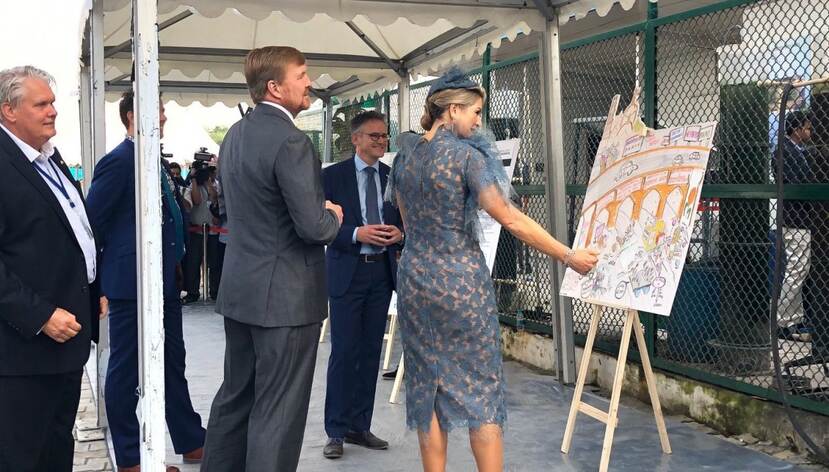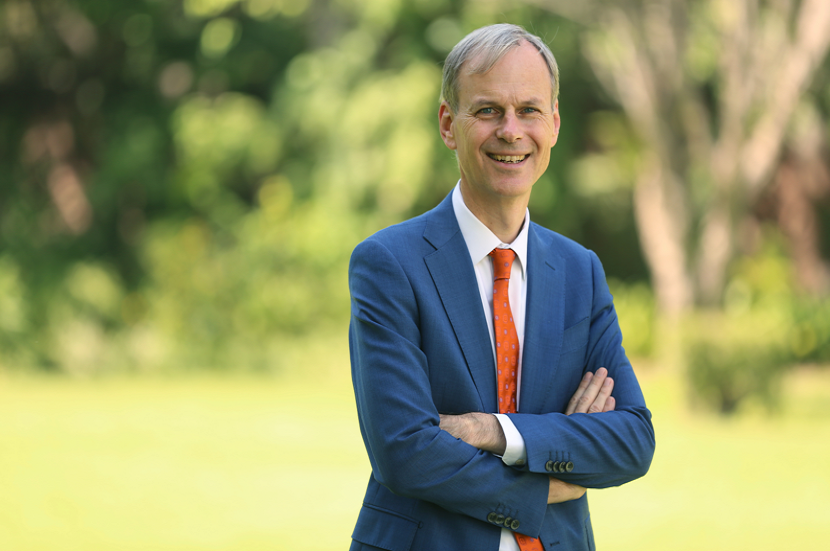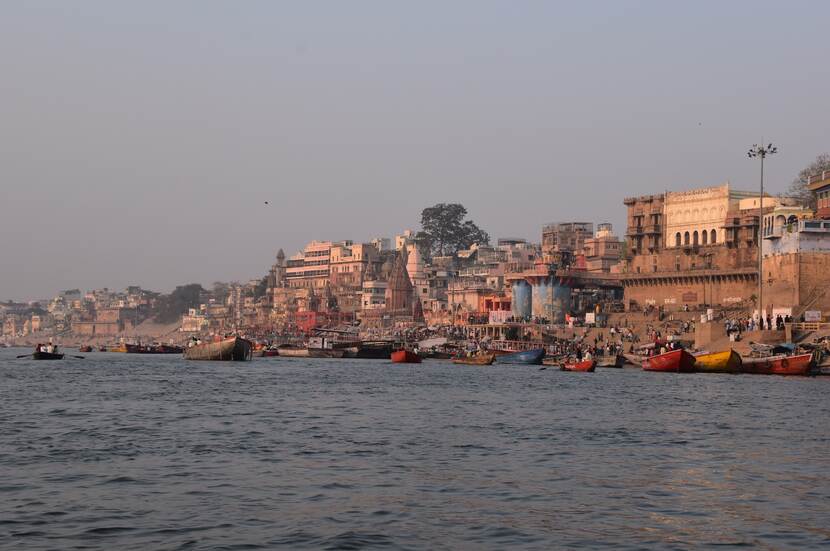Countdown to the UN 2023 Water Conference: sustainable water management in India
In the Netherlands, the water authorities ensure that we can keep our feet dry, have enough drinking water and don’t experience water shortages in dry periods. This water management also inspires other countries, including India. Dutch ambassador to India Marten van den Berg explains how the Netherlands and India are working together on better water management.
Enlarge image
With almost 20% of the world’s population but less than 5% of the global water supply, good water management is critical in India. ‘India is a huge country, almost a continent in itself,’ says ambassador Marten van den Berg. ‘That’s why choices about water are mainly made by the states and municipalities. They don’t really have water boards here, but local government representatives are also democratically elected, of course.’
Local governments are facing a major challenge, says the ambassador. ‘Due to heavy rainfall, some states are being hit by flooding, while others are having to deal with serious water shortages. What’s more, water is often not managed efficiently, many rivers are heavily polluted and access to water is not always evenly distributed.’
Better water management
Climate change is threatening to exacerbate these challenges even further. So there is an urgent need for better water management, Marten van den Berg observes: ‘It’s very important to think about how you organise things. Take groundwater pumping: in many states this is virtually free because electricity is heavily subsidised. This means that many farms are using an unnecessary amount of water and groundwater levels are falling dramatically.’
Enlarge image

Close cooperation
The Netherlands and India work together closely on water. In 2021, the two countries signed a strategic partnership to further strengthen this cooperation. ‘Our cooperation benefits both of our countries,’ says the ambassador, ‘We share our knowledge and experience in India, but also take the lessons learned and techniques developed back to the Netherlands with us.’
Water reservoirs
A good example of this cooperation can be found in the state of Kerala. ‘Following severe flooding the authorities there asked the Netherlands for advice,’ Marten van den Berg explains. ‘A Dutch team worked together with local authorities to see how they could reduce the risk of flooding.’
In southern India too, Dutch companies have joined forces with local authorities to make urban areas more resilient to flooding, drought and pollution. By restoring water reservoirs, for example,. ‘In the city of Chennai it rains heavily for six weeks a year, creating a temporary water surplus. However, water shortages soon occur again. Storing water in reservoirs would help make water available for longer.’
River Ganges
The Netherlands is also involved in a national programme to clean up the River Ganges. The Ganges, which flows through India and Bangladesh, is one of the world’s most polluted rivers. ‘The pollutants come from household, garden and kitchen waste, as well as industrial waste from businesses,’ says the ambassador. The Netherlands and India have set up a joint research programme to look at how the water in the Ganges can be treated in an organic way, using aquatic plants.
Shared responsibility
Tackling the sources of pollution together with local people and businesses is also very important, according to the ambassador. ‘Effective water management is something you have to do together. We discuss how to prevent pollution with residents, businesses, NGOs and religious leaders. By involving people in the choices that are made, they are also more likely to feel responsible.’
Marten van den Berg cites water management in slum areas as an example: ‘Suppose you’re going to restore reservoirs. How do you make sure they’re not going to be used as rubbish dumps? Can residents and shopkeepers make agreements on this, so that waste is collected weekly, for example?’
UN 2023 Water Conference
Inclusive water management is one of the themes of the UN 2023 Water Conference in New York. Marten van den Berg hopes that the conference will also discuss the connection between water management and sustainable development. ‘We need to ensure that everyone has access to clean drinking water and sanitation. And at the same time we need to show people how to use water in a sustainable way.’
The conference, the UN’s first on water in nearly 50 years, aims to put the importance of water higher on the global agenda. Read more about the conference themes here.
Originally published at https://www.government.nl/latest/news/2023/03/21/sustainable-water-management-in-india




